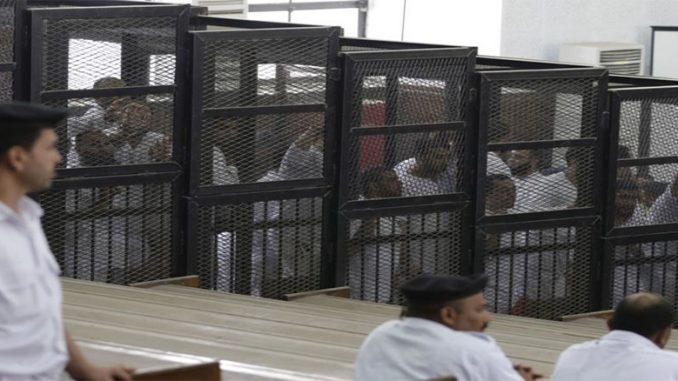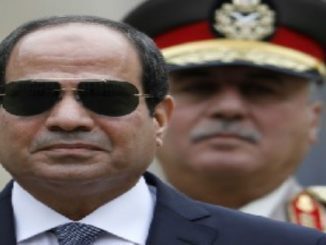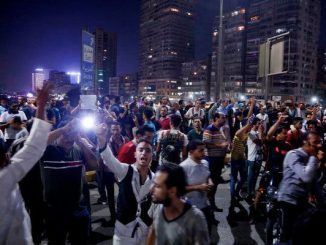Rights groups and others have called for Sisi to allow competitive elections, but his regime is unlikely to accede to such demands. Activists and governments would be wiser to direct their energies toward restoring the rule of law and strengthening the judiciary, which has reined in executive power in the past. Today, weak legal institutions allow for rampant corruption and police brutality that threaten not just the Egyptian people but also the regime.
A more independent, professional, and efficient judiciary is a prerequisite not only for the safety and freedom of Egyptians but for any future democratic transition. Most important, it might actually be achievable under current conditions in Egypt.
RESTORING THE ROLE OF THE JUDICIARY
The prospects for democracy in Egypt are not promising. The 2017 law regulating nongovernmental organizations thoroughly cowed the country’s civil society groups, and political parties are unable to organize effectively. Most Islamists are deeply disillusioned with the democratic process, having participated in free elections in 2011 and 2012, only to be removed from office by a military coup. At the other end of the political spectrum, secular liberal parties such as the Wafd, the Free Egyptians, and the Social Democrats have shown considerable ambivalence about elections that might bring Islamists to power. Egypt also faces little external pressure to democratize. Its two most important allies—the United States and Saudi Arabia—have indicated that democratization is a low priority and not necessary for continued aid.
Egypt’s military constitutes perhaps the most significant obstacle of all. The country’s armed forces play an important role in politics and are decidedly antidemocratic. When the military held both executive and legislative power from 2011 to 2012, it tried more than 12,000 civilians in military courts without due process and brutally repressed several peaceful protests. The military also has institutional interests at stake: under a more democratic system, it would have fewer privileges and less autonomy, while its growing economic empire would be subject to more scrutiny. As long as the military exerts broad influence over Egyptian politics and society, advocates of democratic reform face an uphill battle.
Fortunately, there are other ways to curb Sisi’s power and protect the rights of Egyptians. A strategy that focuses on strengthening legal institutions is not only pragmatic under current conditions but also likely to make a future democratic push more successful. Moreover, such a strategy can be built from a strong foundation in Egyptian history. Before 2011, the judiciary was a well-respected institution that played an important role in balancing executive power. Egyptian judges have a long, proud tradition of respecting the rule of law. Prominent judges played key roles in Egypt’s nationalist movement in the 1920s and challenged executive overreach during the presidencies of Gamal Abdel Nasser and Anwar al-Sadat. During most of Mubarak’s 29-year rule, the judiciary was one of the few institutions that confronted abuses of executive power and defended individual rights.
Egyptian judges have a long, proud tradition of respecting the rule of law.
But the judiciary’s reputation took a beating after Mubarak was overthrown. When the Muslim Brotherhood emerged victorious in the 2011–12 parliamentary election, the Supreme Constitutional Court dissolved the lower house of parliament. Also in 2012, the SCC threatened to dissolve the body charged with drafting a new constitution. Mohamed Morsi responded with the most controversial act of his short-lived presidency: a decree that insulated the constitutional assembly from dissolution by any judicial body. The military overthrew Morsi in 2013, and the chief justice of the SCC became Egypt’s interim president, strengthening the perception that the judiciary was allied with the coup and the regime it installed. Since then, some criminal courts have participated in the crackdown on the Muslim Brotherhood by holding mass trials and convicting hundreds of defendants at a time. The image of the judiciary has been transformed from trusted defender of the law to arm of the deep state.
For the judiciary to restore its reputation, it must increase its independence from the other branches of government. Egypt’s judges have been lobbying for exactly this for decades. The executive branch (acting through the Ministry of Justice) exercises far too much authority over the judiciary by influencing decisions about the hiring, appointment, promotion, and disciplining of judges. For example, at the executive branch’s discretion, some judges receive well-paid temporary postings to legal positions in the civil service and courts of the Gulf states. (The Gulf states lack sufficient personnel to fill these posts, so they recruit from Egypt.) Judges who seek these postings have an unhealthy incentive to issue rulings favorable toward the government. The ministry can also influence the appointment, promotion, and transfer of prosecutors, who therefore have reason to avoid cases that might anger the executive branch, such as investigations into human rights violations by the security services. There have been almost no such investigations in recent years. In addition, the lack of clear criteria for the selection of judges allows for personal connections and family ties to influence the appointment process.
Egypt’s courts also need greater efficiency and professionalism. They labor under an enormous backlog of cases, which slows the adjudication process to a crawl. The judiciary further suffers from a decades-long decline in the quality of legal education. The number of law students has skyrocketed, without an accompanying increase in the number of faculty qualified to teach them. Legal education also emphasizes rote memorization rather than the critical thinking and analytic reasoning needed for skilled judicial rulings. To improve the professionalism of the courts, the government will need to allocate more resources to legal education, improve teaching techniques, and reform curricula. Several specialists have also suggested creating a judicial academy that would provide intensive training to judges early in their careers and additional training as they rise to higher positions. Government and international organizations could help Egyptian courts address their debilitating backlog by donating case management software, helping to revise courtroom procedures, and promoting mediation, arbitration, and other means of resolving legal disputes outside of court.
Another key issue is the state of emergency, which has been in effect for over 50 years (with some breaks here and there). Lifting it was one of the protesters’ key demands during the 2011 uprising. Sisi has continued these powers instead: he declared a state of emergency following the terrorist attacks on two Coptic churches in April 2017, and the parliament has renewed the law every 90 days since. The measure allows the president to transfer some defendants to special emergency state security courts, and others to military courts, at his discretion; he may also censor the press and shut down media outlets. But Egypt’s ordinary laws are more than sufficient to confront threats to national security, and its criminal courts have a long record of vigorously prosecuting offenders, especially in recent years. By lifting the state-of-emergency law, Sisi would send a powerful signal about his willingness to work within existing laws rather than trying to circumvent them.
A STRATEGIC WAY FORWARD
These efforts will require the full cooperation of the current leaders of the regime, who will be reluctant to strengthen institutions that could threaten their power. Activists and government advisers who support the rule of law can make several lines of argument that could persuade Egypt’s leaders to accept reforms. For one, Sisi has expressed concern about corruption and reports of brutality by the police; improving the rule of law would address both. If Egyptian officials hesitate to undertake reforms, it would be useful to remind them that the uprising in 2011—from the regime’s standpoint, the single greatest challenge to the country’s stability in 60 years—was driven by public anger over police abuse.




